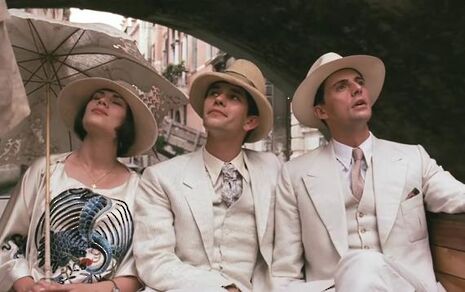Mid-Term Blues
Bret Cameron talks expectations, satisfaction, and the cha-cha

"You want either a first or a fourth. There is no value in anything between. Time spent on a good second is time thrown away".
This is the advice given in Evelyn Waugh’s Brideshead Revisited to Charles, who is preparing to go to Oxford. It is a slogan for the exceptional. Work so hard that you succeed in your degree, the quote implies, or succeed so completely in something else that you barely manage to scrape a pass.
For most people, more so than in Waugh’s day, getting in to Oxford or Cambridge is an exceptional feat. Once we are here, however, it is easy to feel despondent.
On average, the students of Cambridge are less happy than those at other universities. Or, at least, they are less satisfied. This is the language of the National Student Survey, which in January revealed that Cambridge ranked significantly below the national average in a number of fields.
55 per cent of Cambridge students considered their workload to be manageable, 27 per cent agreed they could always complete work to their satisfaction and 39 per cent agreed they were given enough time to understand the things they had to learn, compared to national averages of 78 per cent, 60 per cent and 70 per cent, respectively.
The results do not directly show Cambridge students to be unhappy, but they evidence an environment in which it might be easier than usual to become discontent.
Of course Cambridge is hard, and we knew that when we applied. I’m hesitant to suggest the system has to change. I agree with much of the sentiment and reasoning behind the #endweek5blues campaign (and I’m wearing a blue square in support of the movement) but attempts to tackle such a colossal and long-enduring system as the Cambridge term are of little use to an unhappy individual.
Far better, for the individual, is to learn to be happy in the Cambridge system as it exists. I certainly haven’t cracked the system, but I hit a real low point last term and, having made some very deliberate attempts to change my lifestyle, I managed to raise my spirits again.
Which brings us back to Evelyn Waugh. It is a memorable quote, but, as a guide to personal happiness, it is absolutely saturated in falsehood. It is not prowess in a single area that brings happiness, but participation (at whatever level) in a variety of things.
It is variety which prevented me from falling into the rhythm of melancholia I suffered from last term, even if variety might encourage the sort of lifestyle likely to nurture that contemptible, mundane ‘good second’.
It doesn’t matter if you are not the best at everything, or anything you do; I joined a ballroom dancing class and my mastery of the cha-cha is still some way off. There is a lot to be said for unembarrassed, joyous mediocrity, not least because mediocrity in Cambridge is unlikely to mean mediocrity elsewhere.
Join clubs, societies, teams; get gym membership, music lessons; audition for plays; write articles, fiction, poems; make new friends and appreciate old ones; leave some time aside for your degree and try to love it. I know it works because in the last few weeks I’ve done all of these things and I feel much better for it.
Personal happiness is the only truly worthwhile pursuit. It might seem selfish, but it a fortunate requisite of one’s own happiness that it tends to depend on the happiness of others, and it is from a foundation of personal happiness that philanthropy towards others is most likely to flow.
 News / Right-wing billionaire Peter Thiel gives ‘antichrist’ lecture in Cambridge6 February 2026
News / Right-wing billionaire Peter Thiel gives ‘antichrist’ lecture in Cambridge6 February 2026 News / John’s duped into £10m overspend6 February 2026
News / John’s duped into £10m overspend6 February 2026 News / Epstein contacted Cambridge academics about research funding6 February 2026
News / Epstein contacted Cambridge academics about research funding6 February 2026 News / Lucy Cav students go on rent strike over hot water issues6 February 2026
News / Lucy Cav students go on rent strike over hot water issues6 February 2026 News / Corpus FemSoc no longer named after man6 February 2026
News / Corpus FemSoc no longer named after man6 February 2026










